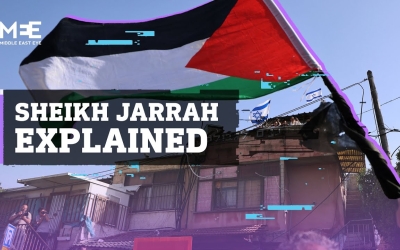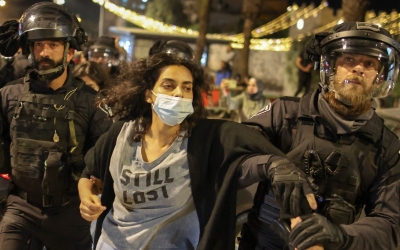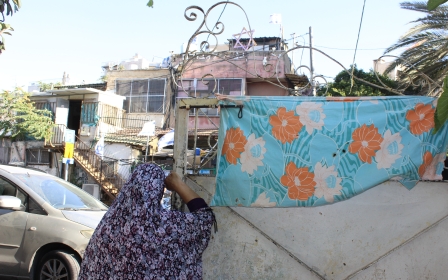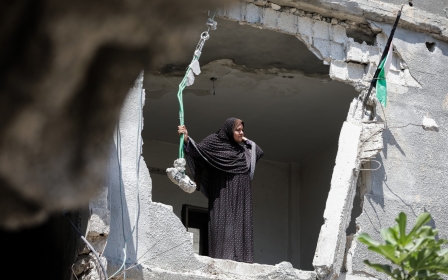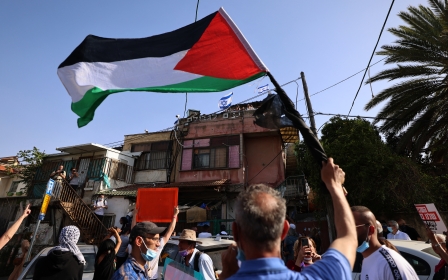Sheikh Jarrah: High court defers decision on expulsion of Palestinians from their homes
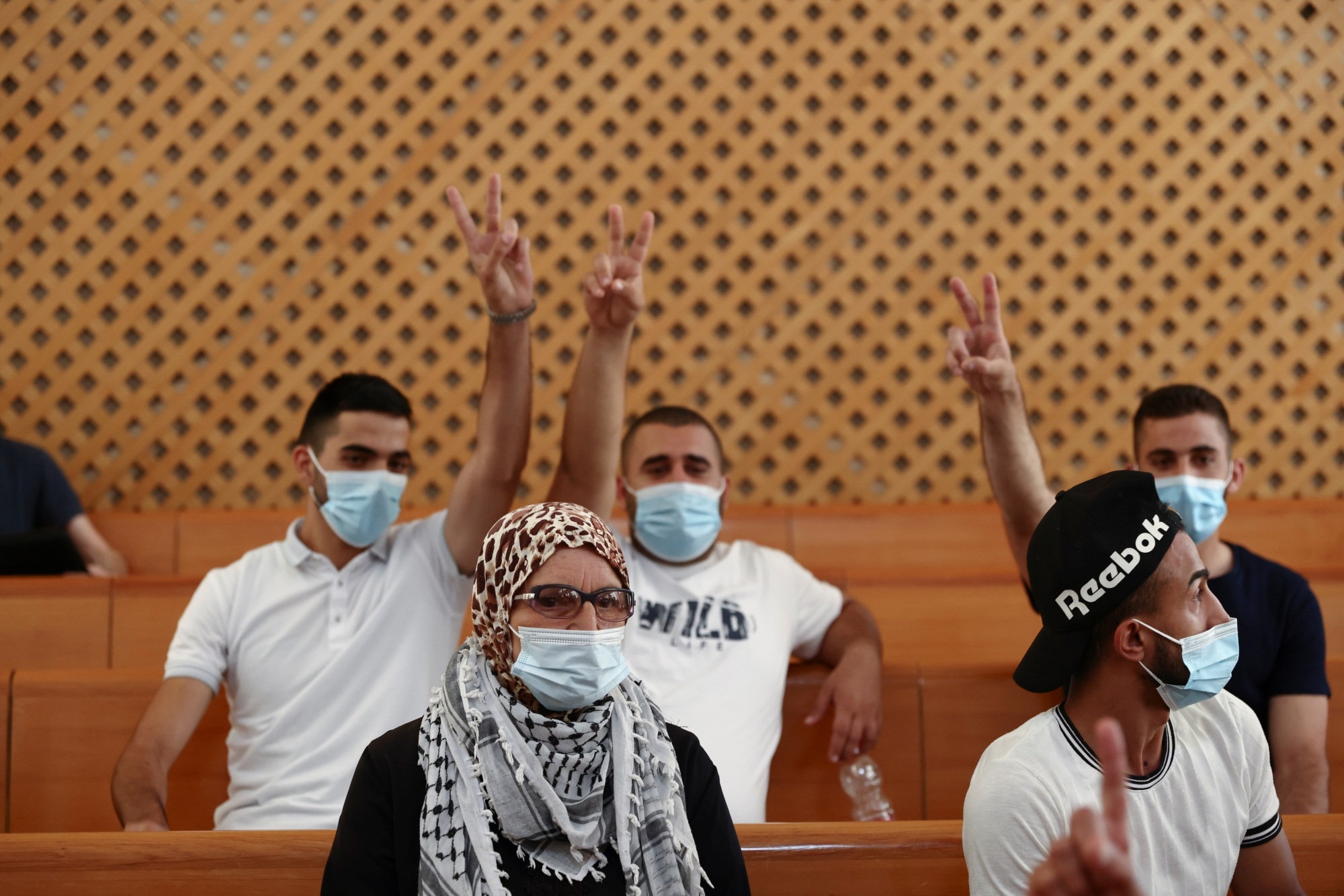
A final verdict on the expulsion of Palestinians from their homes in occupied East Jerusalem’s Sheikh Jarrah has been deferred after the Israeli Supreme Court said it has not heard sufficient arguments from both sides.
The court is expected to reach a final verdict later on Monday, or hold another session in coming days, according to Sami Ershid, one of the lawyers for the Palestinian families.
Earlier on Monday, the court had suggested a compromise deal stipulating that the Palestinian families would concede ownership of their homes to settler organisation Nahalat Shimon, the plaintiff seeking to take over the homes, in exchange for being allowed to remain in their homes as “protected tenants” until three generations of the family passed away.
However, no agreement was reached on the suggested deal, which notably required that the families pay rent to Nahalat Shimon.
New MEE newsletter: Jerusalem Dispatch
Sign up to get the latest insights and analysis on Israel-Palestine, alongside Turkey Unpacked and other MEE newsletters
If the appeal is unsuccessful, four Palestinian families - Iskafi, al-Kurd, Jaanoi and Qassem - will be forced to leave their homes to make way for Israeli settlers.
Alaa Salayma, one of the Palestinians facing eviction, told Middle East Eye that the families had categorically rejected the compromise.
“The minute we pay rent for our homes, it means we have given up ownership,” Salayma said. "This is not an option. We are the owners of these homes."
Muna al-Kurd, a Palestinian activist and member of the al-Kurd family, said the Israeli court was stalling to avoid making a decision.
“They are pressuring us into a compromise deal that would please the settlers, but we reject this,” Kurd told MEE.
Mohammed al-Kurd, Muna's twin brother, said he was not optimistic that the court would deliver a just verdict.
“I don’t think this system will ever be fair or just,” Mohammed told reporters at the court. “This entire country was established on land theft and stealing homes from Palestinians.”
Eviction orders
Since Israel seized East Jerusalem in the 1967 war, Israeli settler organisations have claimed ownership of land in Sheikh Jarrah and have filed multiple successful lawsuits to evict Palestinians from the neighbourhood - despite settlements in occupied territories being illegal under international law.
Earlier this year, a Jerusalem district court ruled the homes of the four families legally belonged to Jewish families, citing purchases decades ago.
The Palestinian families are part of 28 families - making up some 500 Palestinians - who are facing similar court-ordered evictions in the neighbourhood.
Israeli NGO Ir Amim said in a statement that concerted pressure must be exerted on the Israeli government to “end these measures of dispossession”.
The organisation noted that nearly 150 Palestinian families - totalling over 1,000 people - were under threat of mass displacement in the Sheikh Jarrah and Batan al-Hawa neighbourhoods.
Earlier on Monday, hundreds of people gathered outside the court in Jerusalem ahead of the decision in order to show support for the Palestinian families.
“This is not a legal matter,” Sami Abu Shehadeh - a member of the Joint List that represents Palestinian citizens of Israel in Israel's parliament, the Knesset - told MEE.
“This is a political case. This is part of an ongoing Israeli effort to Judaise East Jerusalem, which it occupied in 1967,” Abu Shehadeh added. “This is a clear violation of international law.”
A verdict was due in May but was delayed after the Supreme Court asked Attorney General Avichai Mandelblit to submit his legal opinion on the threatened evictions. In June, Mandelblit said he would not be intervening in the issue.
The planned forced expulsions sparked a large pro-Palestinian protest and solidarity sit-in movement in Sheikh Jarrah in May. The daily protests were violently dispersed by Israeli forces using tear gas, sound bombs and rubber-coated steel bullets.
The tensions coincided with violent Israeli raids on al-Aqsa Mosque, leading to mass protests across Israel and the occupied territories and an 11-day armed conflict between Israeli forces and Palestinian groups in the besieged Gaza Strip.
Israeli forces killed at least 260 Palestinians, including 66 children. Twelve people were killed in Israel by Palestinian rockets, including two children.
Middle East Eye delivers independent and unrivalled coverage and analysis of the Middle East, North Africa and beyond. To learn more about republishing this content and the associated fees, please fill out this form. More about MEE can be found here.


